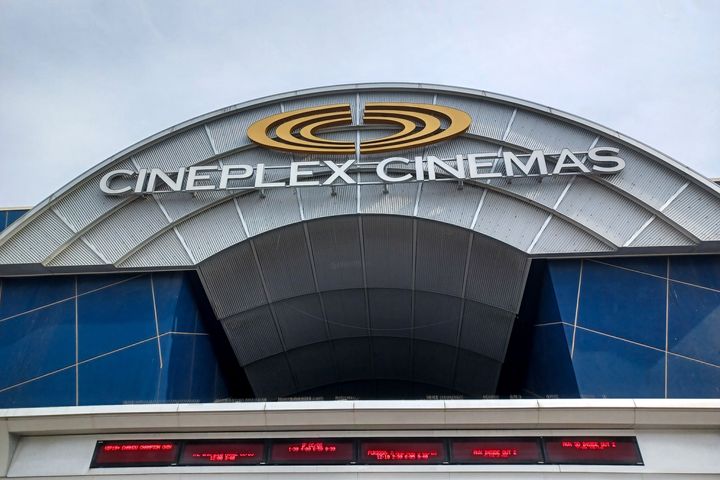
Schmoozing at the WSFF Gala
Last night was the first evening of the Worldwide Short Film Festival. Following the Opening screening at the Bloor Cinema, the party migrated to the C-Lounge.
While the lounge itself is quite a swanky joint, famed for it's co-ed bathrooms, the filmmakers and their crew would not be moved by such shallow concerns, and comfort ruled the evening. Filmies are of course, very casual - hip, but plenty of jeans in sight.
There were at least two television crews I noted, which I found marred the mood somewhat, with camera and sound ops rushing everywhere and glaring lights flooding the otherwise gently lit club. Given that the Gala is a networking and self-promotional event as well as a celebration, it's only to be expected, but I found it made people somewhat more self-conscious and distracted, though the mood remained overall light and easy.
Inside the main room people chatted in small groups, some commandeering the couches along the wall and others standing with their drinks, gazing around the room. Outside on the patio (dangerous for those of us in heels), people milled around by a lovely shallow pool or ensconced themselves in the nooks beneath a sort of curtained overhang.
As the evening progressed and, I assume, more alcohol imbibed, people seemed more willing to shed their shyness and conversed openly and eagerly about their films with the press and WSFF ticket holders. I caught up with a few filmmakers in the fest, happy to plug their films, chat about the experience of the festival and talk about their future projects - a filmmaker's work is never done.
First, I spoke with the smiling, fresh-faced makers of "Can You Love Me", Sarah Kolasky and Adam Garnet Jones.

Their Canadian documentary follows the story of a Toronto artist and a specific art project she developed that challenges the boundary between what is private and personal and what is appropriate for public art. Sarah says you should see it because you'll "be entertained but slightly unnerved as well." Adam reveals that past audiences (it was also screened at Inside Out) have all had a strong response to the protagonist - while many women relate to her, those that tend to immediately hate her are "young straight men," perhaps because she seems to "stand for the 'everybitch'." For Sarah and Adam, it's exciting to have a project from school (they reluctantly admit to being Ryerson students) included in a festival of such breadth, where they meet people who've worked on their projects for years. With a head start like theirs, I wonder what next semester will bring.
I next spoke with the makers of a self-proclaimed "scrappy underdog of the film world",

Cost of Living , Calgarians Jonathan Joffe and Shawna Cox.
Their sci-fi short stars William B. Davis (aka Cigarette-Smoking Man) and was made on the cheap with the cash Joffe earned pulling cable at the Junos. The film has made good at other fests in North America, and both Joffe and Cox are working on future projects. Cox has features and a series in development, and Joffe in planning a travel doc in Mexico. They clearly share a devotion and enthusiasm for film and I'm quite sure we'll be hearing more from them.
The serious and focused Richie Mehta,

a veteran of, he estimates, at least 20 festivals, is at WSFF with his
short Amal, part of the Spotlight on India screening. The film's protagonist is member of a lower caste in India, who's been taught that it's his duty to be a taxi driver. Mehta says he uses the story to find "what you need to be happy." Although he's been to many festivals around the world, he says the WSFF is the most inspiring because it sets a benchmark for the best short films in the world. It "makes me reevaluate what I'm capable of doing," he says, and here he's seen films "that humble me."
My last conversation of the evening was with Larry Gold, a friendly New Yorker with an infectious grin,

and producer of the Oscar nominated short Everything in this Country Must, a film from the UK that looks at the conflict between the Irish and British in Northern Ireland in the mid 1980s. Although the film's literal focus is the Catholic versus Protestant conflict which even today persists, Larry avers that the "conflict could be going on anywhere," it's a "universal story [for an] occupied country." The parallels between that situation and that of Iraq or the Israeli-Palestinian conflict are evident. Gold and director Gary McKendry have worked together before on commercials and are currently working on a feature length thriller. Unbelievable as it may seem, given the films broad success in numerous festivals, this is their first short, and as Larry said, they "didn't know anything about the market." I suspect their experience in commercials didn't hurt, despite the difference in time commitment, by which Larry was frankly surprised.
I headed out around 11:30, and made it home before last night's sudden torrential downpour. I found myself energized by the enthusiasm and excitement the filmmakers all had for the event in general and for their films specifically. It's clear that they're all proud of their work, and that the WSFF has done a fine job of selecting a wide variety of films to feature at the festival. I'm looking forward to trotting out again today, in sensible shoes this time, and catching a few of the screenings. Keep an eye out for future posts; we'll see if it lives up to the hype. Though everyone's so nice, I sure hope it does.
Latest Videos
Latest Videos
Join the conversation Load comments






